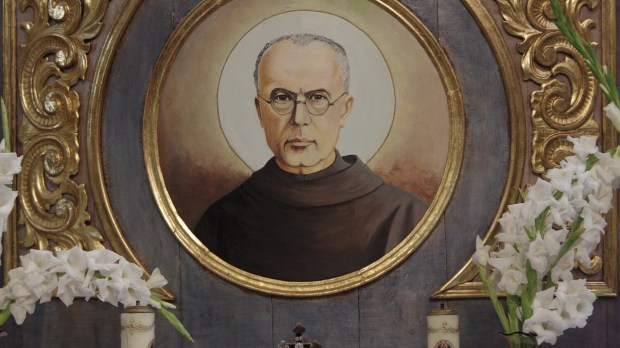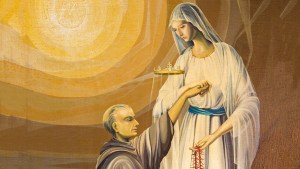Help Aleteia continue its mission by making a tax-deductible donation. In this way, Aleteia's future will be yours as well.
*Your donation is tax deductible!
St. Maximilian Kolbe is widely know as a “martyr of charity,” offering his life at Auschwitz in place of a husband and father who was chosen to die. This supreme act of love perfectly summarizes his life and expresses a motto that he lived by.
St. John Paul II pointed to this phrase when visiting a chapel in Rome dedicated to St. Maximilian Kolbe in 1979.
Jesus, Mary, and Francis were his three great loves, that is, the secret of his heroic charity: “Only love creates,” he repeated to all those who approached him. This is the expression which, like a lamp, illumines his whole life. It was this superior ideal, this essential duty of every true Christian, that enabled him to overcome the cruelty and violence of his tremendous ordeal by the splendid testimony of his brotherly love and his forgiveness of his persecutors.
Pope Benedict XVI similarly commented on this phrase, giving more context to it in a general audience message in 2008.
[I]t is precisely in their martyrdom that the brightness of Love which dispels the gloom of selfishness and hatred shines forth. The following words are attributed to St. Maximilian Kolbe, who is said to have spoken them when the Nazi persecution was raging: “Hatred is not a creative force: only love is creative“.
This principle appears to be consistent with what St. John Paul II coined as the “culture of life,” as opposed to the “culture of death.”
World War II clearly showed the world how hatred and violence inevitably lead to death, while love and self-sacrifice lead to new life.
St. Maximilian Kolbe continues to teach us today to embrace love in our everyday lives and to be a creative force in the world.



